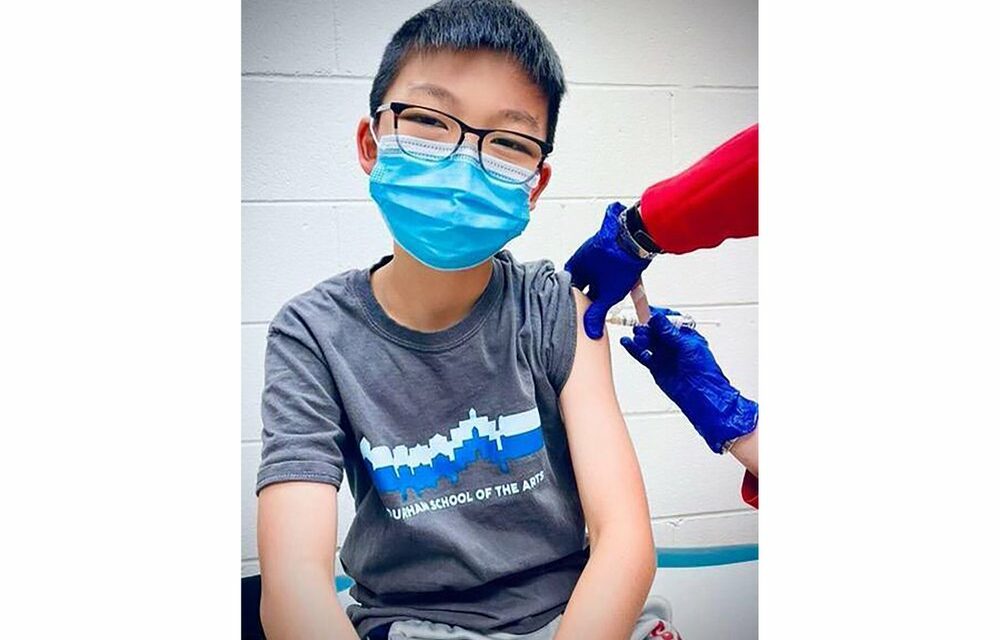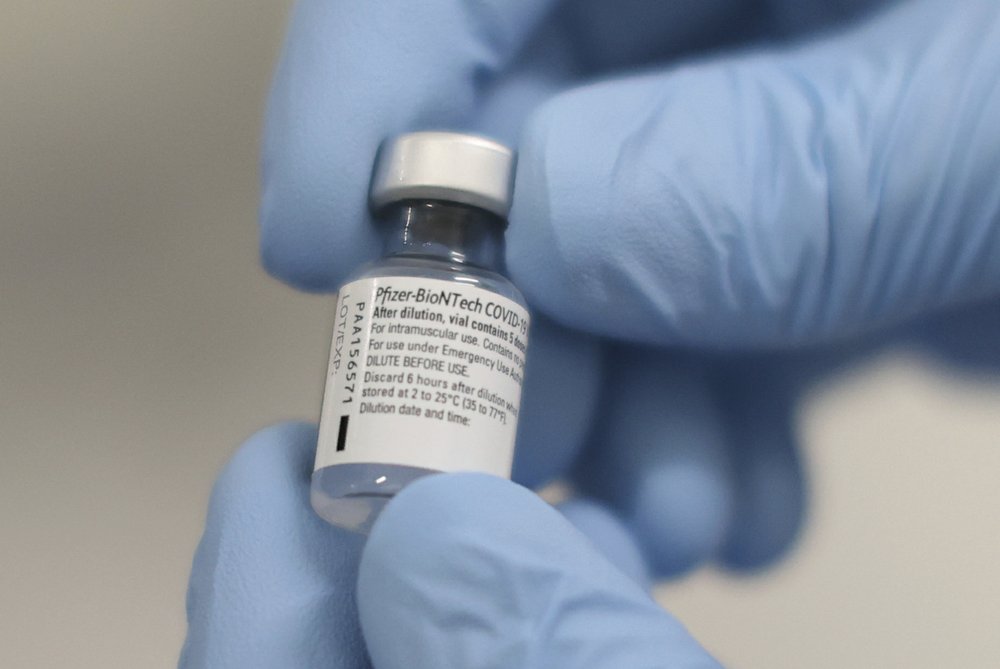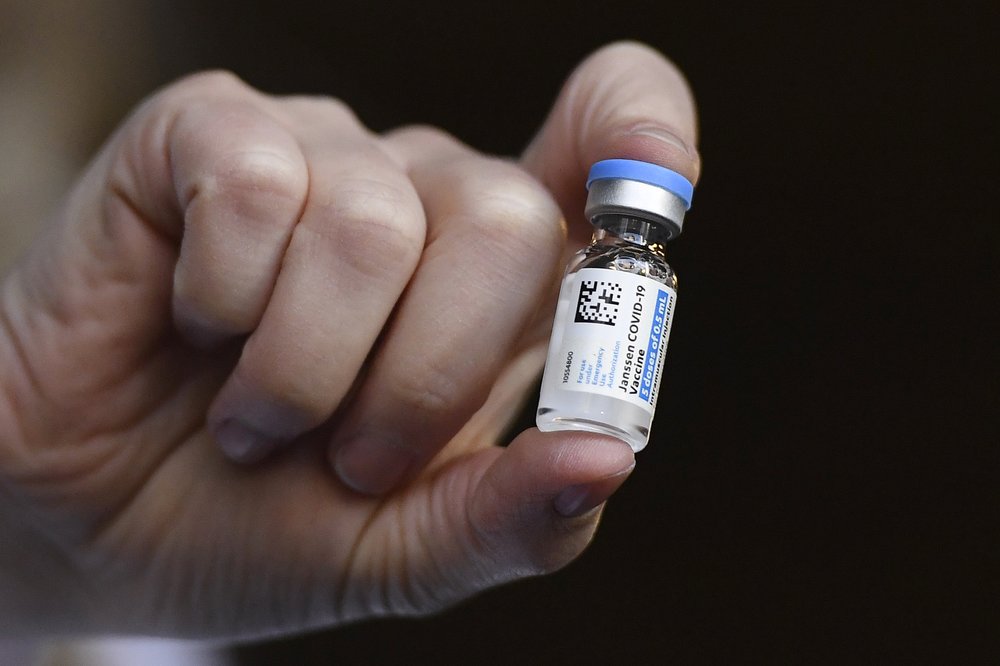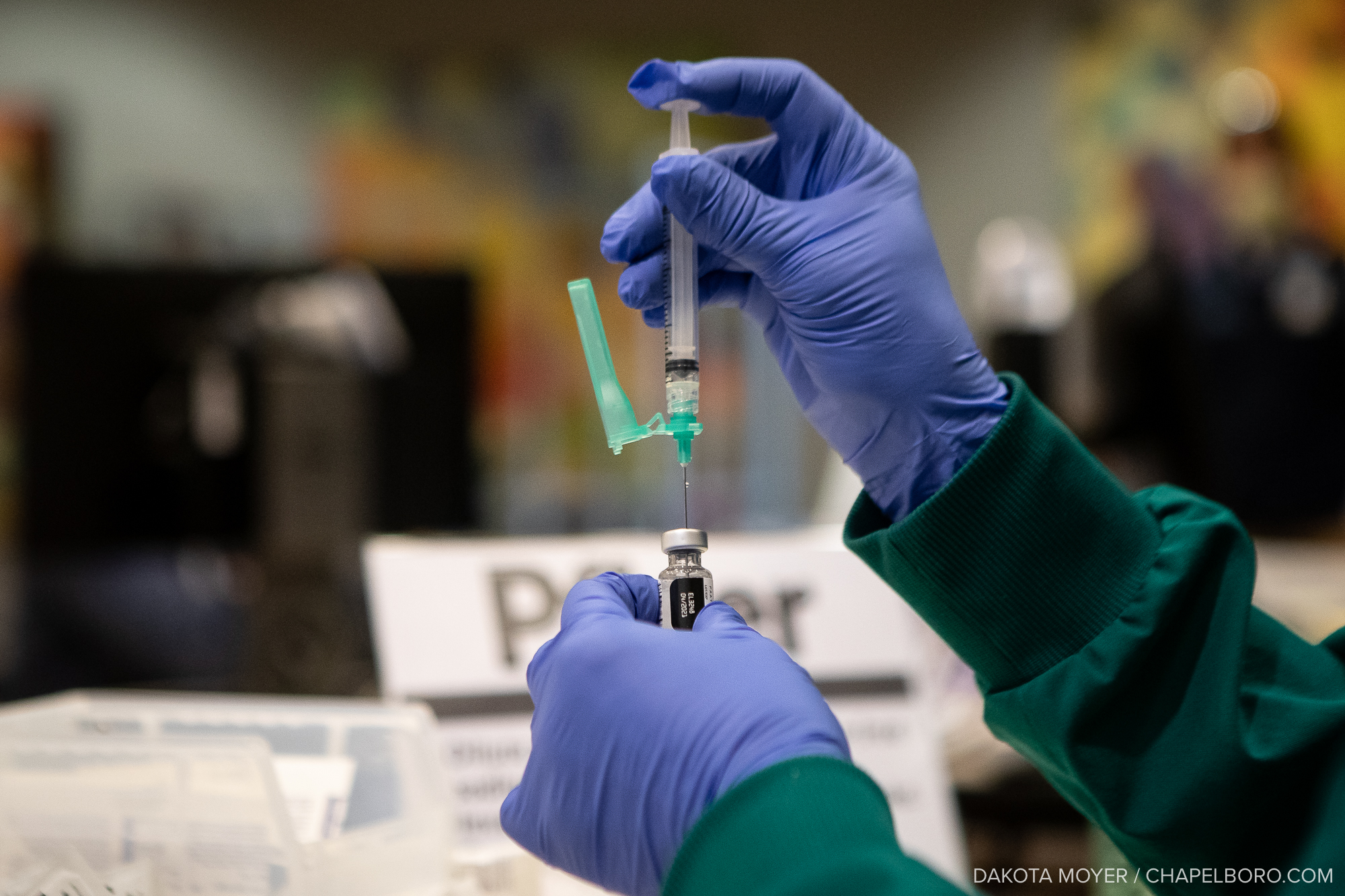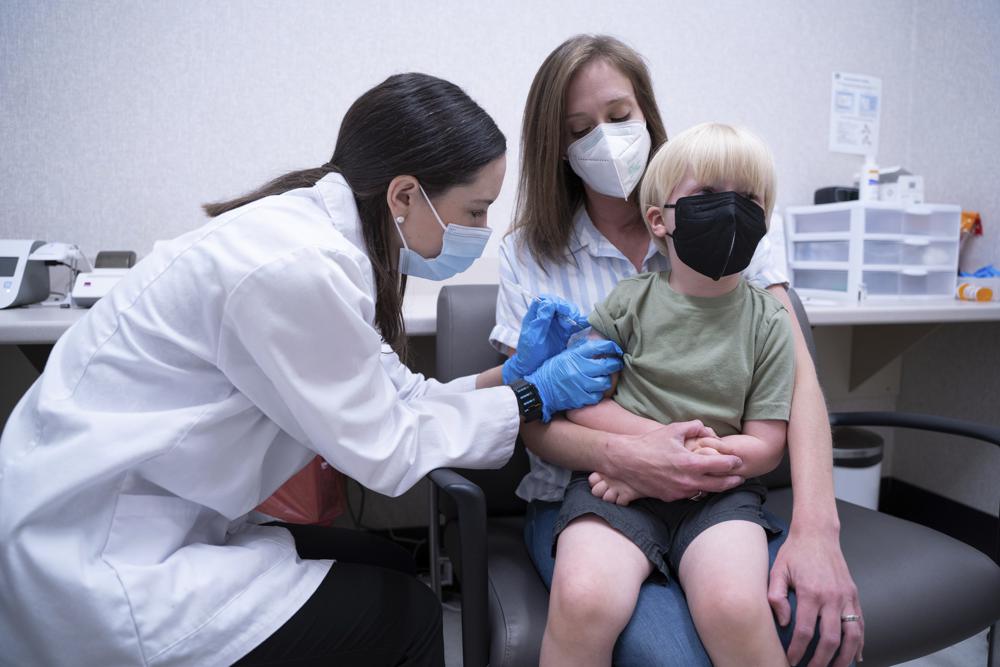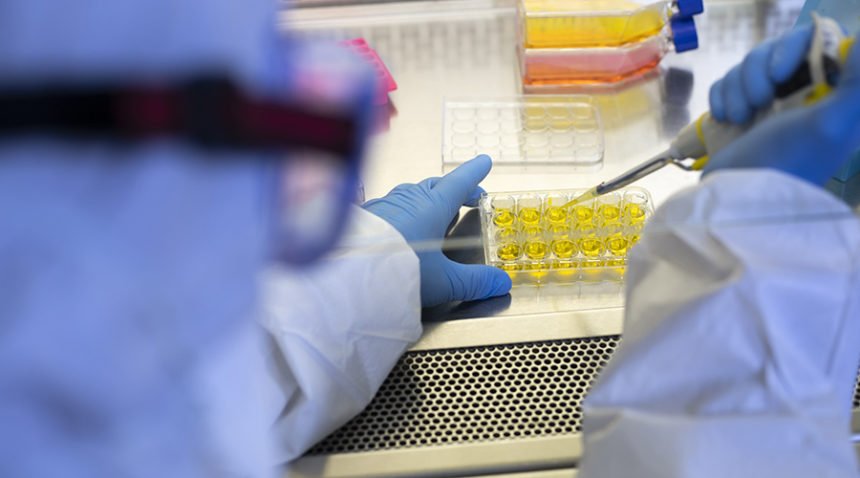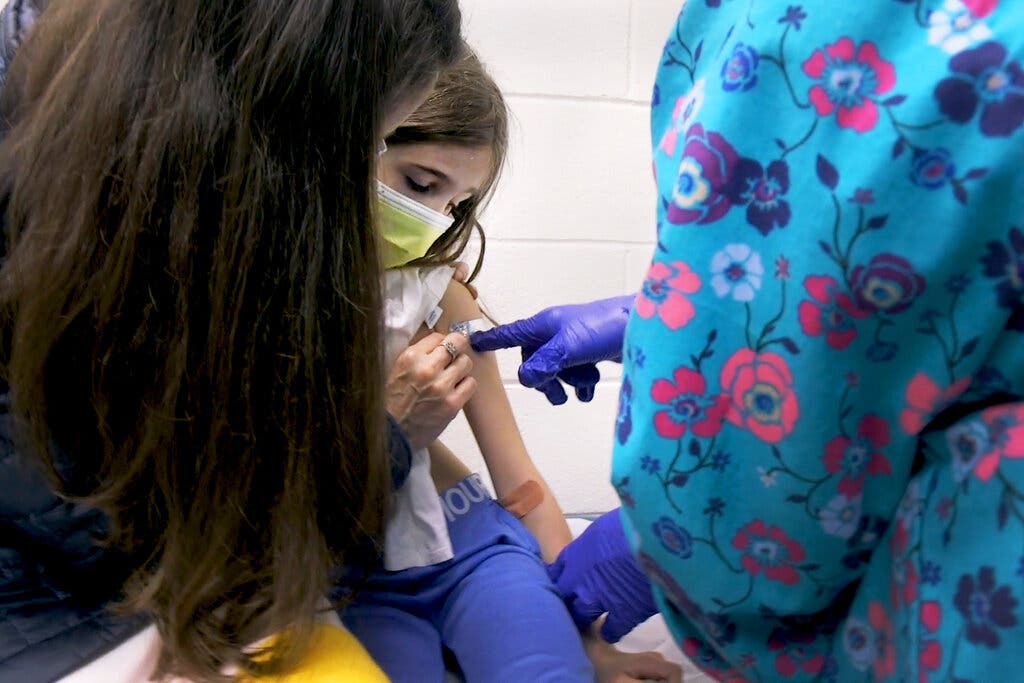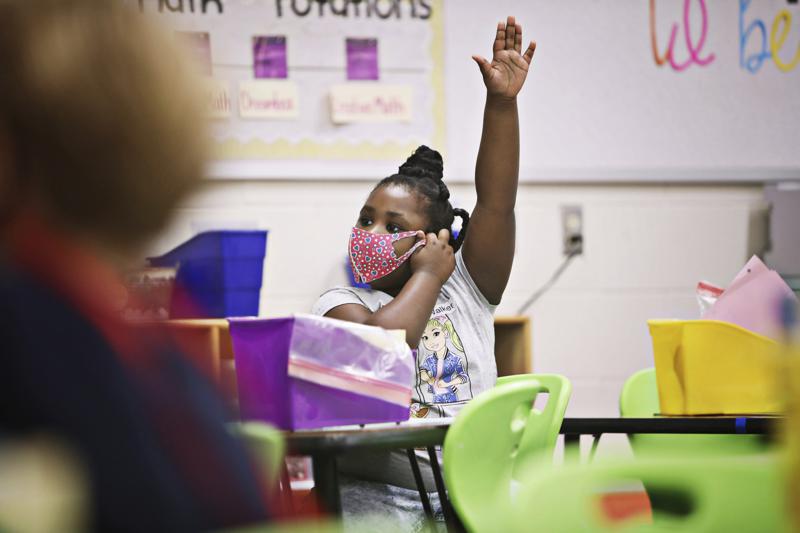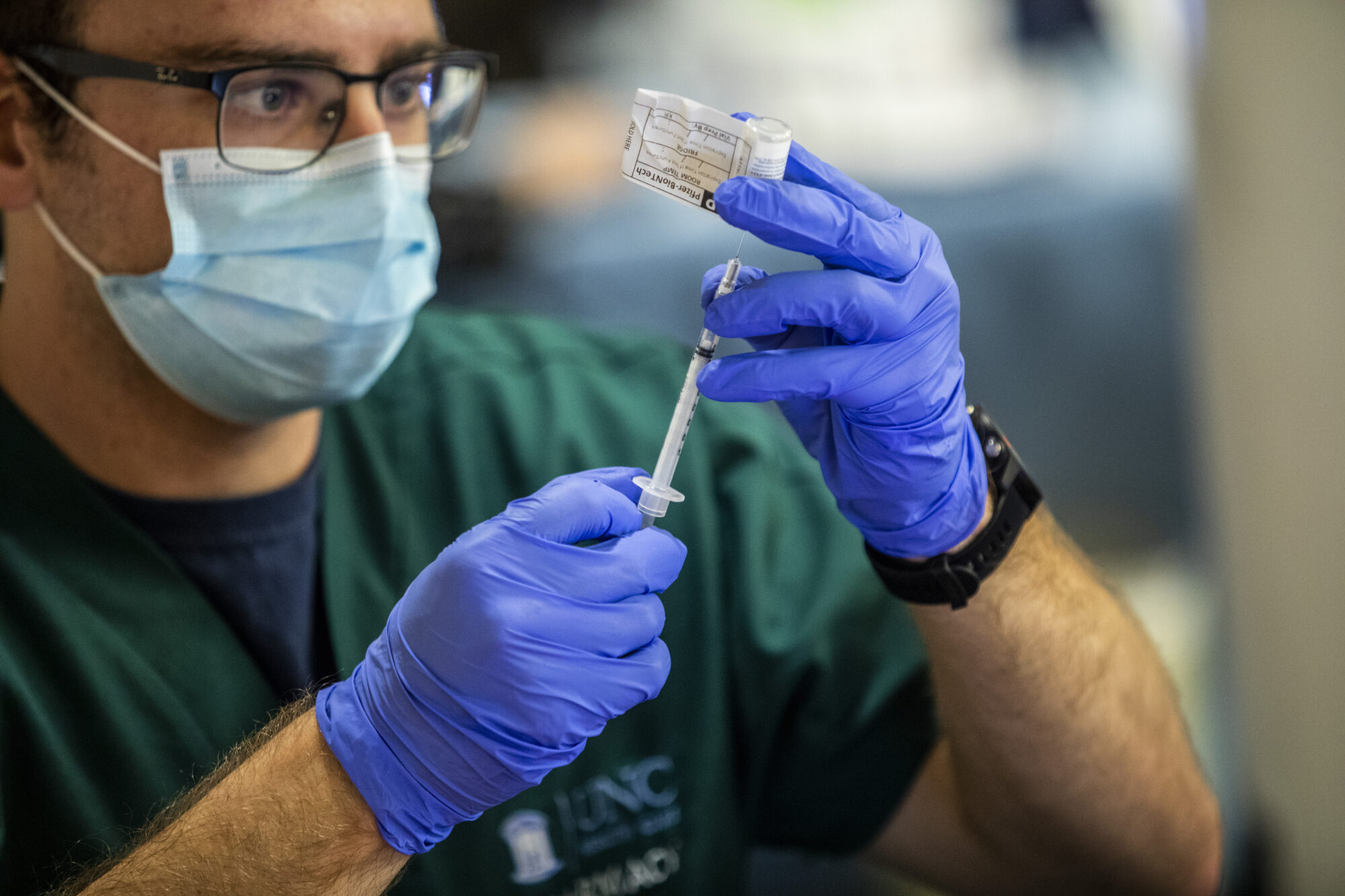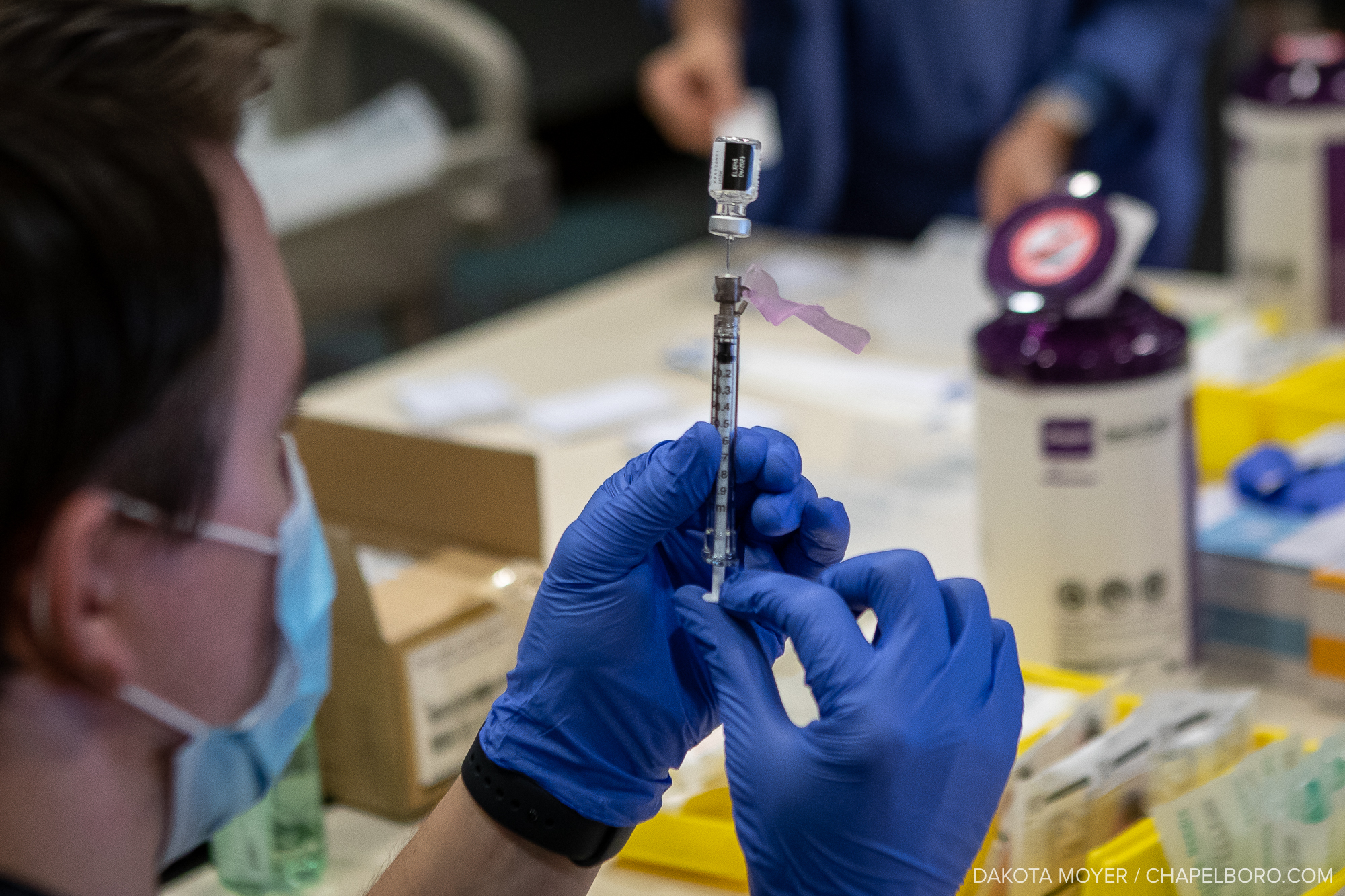Despite more people being eligible for a COVID-19 vaccine, some experts say herd immunity may not be attainable under the current vaccination rollout plan and FDA guidelines.
Almost 130 million people 18 or older, or 50.4 percent of the adult population, have received at least one dose of the COVID-19 vaccine.
On Monday, all American’s 16 and older became eligible to get their vaccine in compliance with President Joe Biden’s deadline. In North Carolina, all residents 16 and older became eligible for their vaccine on April 7 with the opening of Group 5.
While getting half the adult population at least partially vaccinated is no small feat, Dr. Emmanuel Walter Jr., Chief Medical Officer at the Duke Vaccine Institute, said the country still has a long way to go before reaching what he calls “community protection.”
“The best estimates from all the experts we can see is approximately 70 to 85 percent of the population needs to receive a vaccine to achieve what we call herd protection,” said Walter. “I like to actually call it community protection. That’s a pretty high bar to achieve. There are other infectious diseases, for example, measles, where we actually have to achieve closer to 95 percent coverage in the population, and we do pretty well with that.”
Walter said one of the nation’s biggest hurdles in reaching community protection is children. Currently, only children ages 16 or 17 are eligible for the Pfizer vaccine. Despite late-stage trial results showing that the Pfizer vaccine is highly effective at preventing COVID-19 in kids ages 12 to 15, Emergency Use Authorization from the Food and Drug Administration is still pending.
While children don’t typically develop the more severe COVID symptoms, experts say getting them vaccinated is an important step towards a return to normalcy.
“The one group that I think we really need to add into the equation to achieve community protection, or herd immunity, are children,” Walter said. “I think, as you all know, clinical trials for children are well underway. Children make up about 23 percent of the population. So, if you automatically discount vaccinating children, you’re already down to about 75 percent or so of the population that’s getting vaccinated. So, reaching our goal to achieve herd immunity, I think we need to consider vaccinating children.”
Dr. Anthony Fauci, the nation’s top infectious diseases specialist, said on Sunday that “kids of any age” should be able to get vaccinated by the beginning of 2022. Fauci said he expects all high school students to be able to be vaccinated by the fall term.
As the remainder of the adult population across the country became eligible for their COVID-19 vaccine on Monday, new polls show that that willingness to get vaccinated has risen.
According to a poll from the Associated Press’s Center for Public Affairs Research, in January, 67 percent of adult Americans were willing to get vaccinated or had already received at least one shot. In the center’s most recent poll, that figure has now climbed to 75 percent.
Nationwide, 24 percent of Black Americans and 22 percent of Hispanic Americans say they will probably or definitely not get vaccinated, down from 41 percent and 34 percent in January, respectively. Among white Americans, 26 percent now say they will not get vaccinated. In January, that number was 31 percent.
While more of the population wanting to get vaccinated is great, Walter said distributing vaccine fairly, equitably and quickly may prove to be the bigger challenge.
“I do think access is going to be a big issue, probably more than hesitancy,” Walter said. “There always will be vaccine-hesitant people but I worry about the access issue. One of our big drivers here in the United States is the emergence of viral variants. If we don’t get a handle on that globally we may see the emergence of more variants and some of them could be more resistant to coverage by our current vaccines.”
One of the vaccines proven to be effective against these emerging variants is the Johnson & Johnson vaccine. The J&J vaccine has already been tested against some of the virus variants prior to its authorization on February 27, whereas the Pfizer and Moderna trials were conducted last year before the variants began emerging.
Dr. Anthony Fauci indicated Sunday that the government will likely move to resume use of Johnson & Johnson’s COVID-19 vaccine this week – possibly with restrictions or broader warnings after reports of six, rare blood clot cases. Fauci said he expects a decision when advisers to the CDC meet Friday to discuss the “pause” in the single-dose vaccine.
Lead photo via Richard Chung/AP.
Chapelboro.com does not charge subscription fees. You can support local journalism and our mission to serve the community. Contribute today – every single dollar matters.

